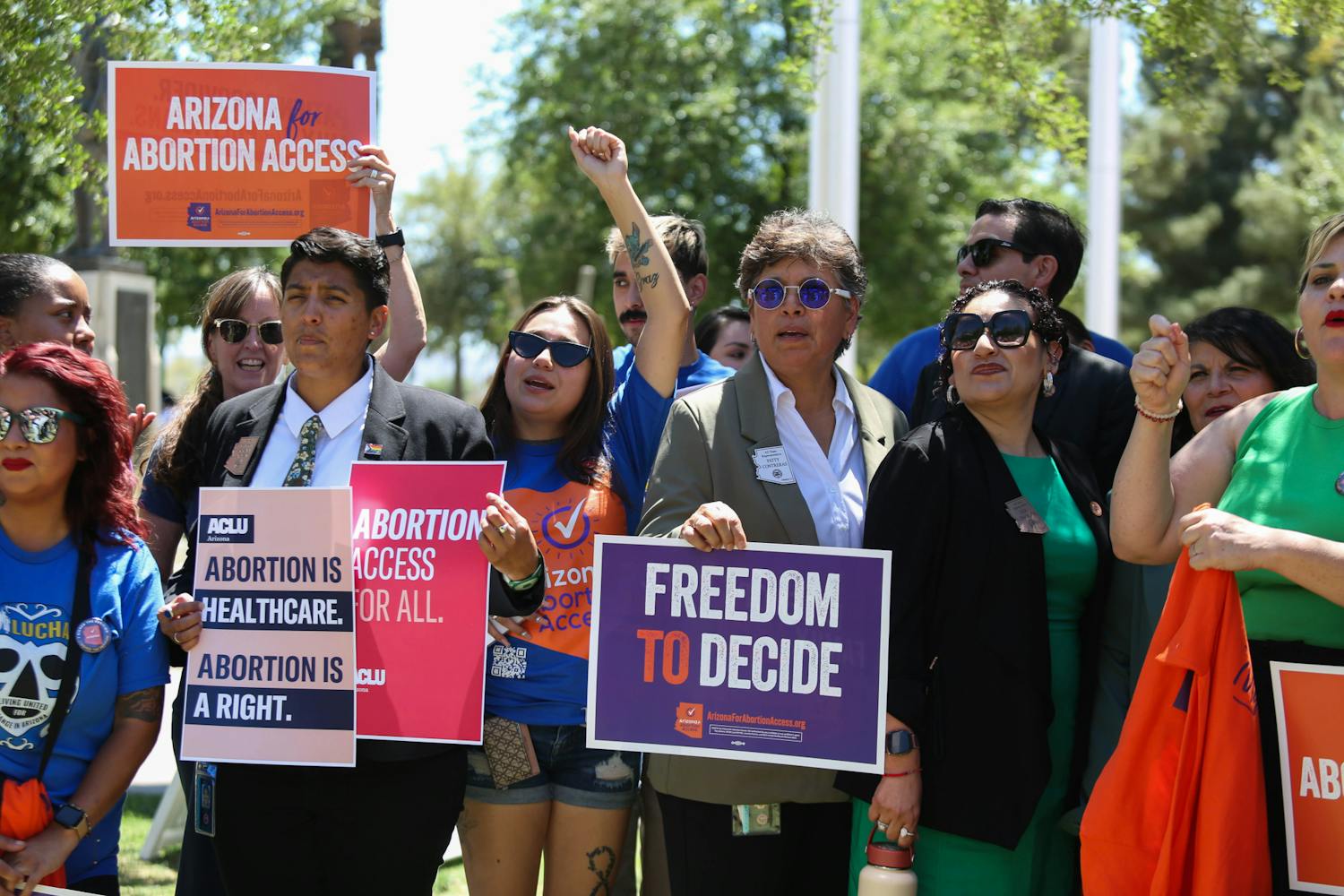A bill in the state Legislature would track racial profiling in law enforcement agencies.
Senate Bill 1071, sponsored by Sen. David Schapira, D-Tempe, would require city, county and state peace officers to collect data from each pedestrian or driver of a vehicle they stop. The officer would take note of the person’s age, location, race, ethnicity, the basis for the stop and so forth.
Each law enforcement agency would present an annual report to the state attorney general on the data collected.
Once the data is given to the attorney general, a separate person, organization or company would conduct a statistical analysis comparing the percentage of pedestrians, cyclists and motorists who are members of minority groups with the percentage of the state’s population.
Based on the analysis, the attorney general would determine if a certain agency is engaging in racial profiling.
According to the bill, which was introduced last month, racial profiling refers to the practice of any peace officer who uses race, ethnicity, national origin or religion “to any degree” when deciding to investigate a person.
If a law enforcement agency were found to have used racial profiling, it would need to conduct annual trainings to prevent racial profiling in the future.
If a law enforcement agency fails to comply with the rules of the bill, the Legislature would not appropriate any money to the agency in the next regular legislative session.
“We certainly think this is a major step in the right direction,” said Alessandra Soler Meetze, executive director of the ACLU of Arizona.
Meetze said racial profiling exists in Arizona, and there have been studies by the Arizona Department of Public Safety that have shown this.
Meetze was referring to the class action lawsuit filed in 2001 by the ACLU and other supporting civil rights groups challenging racial profiling by DPS. After the lawsuit, a settlement was formed in July 2007 stating that DPS must collect data during traffic stops.
After a year of data collections, a study done by NAU faculty members suggested that a “disproportionate number of motorists stopped and searched” by DPS were racial minorities, according to the ACLU of Arizona.
“Many police chiefs, criminal justice experts and others in the law enforcement community believe that data collection is an important first step in looking toward racial profiling,” Meetze said.
SB 1071 would expand the tracking of racial profiling in the state.
“[If SB 1071 passes] hopefully it will remove some of the stigma after the passing of SB 1070,” said Danny Englese, president of the Tempe campus Young Democrats. “It’d be really good to get some positive national publicity.”
Englese said the fact that Arizona does not already have one of these data collection laws in place does not surprise him.
“I’d like to say I’m surprised … but nothing can shock me anymore when it comes to Arizona law,” he said.
College Republicans President Tyler Bowyer said that while he thinks the idea behind it is good, the bill is unnecessary.
“[SB 1071] will put strains on the police departments for more staffing, trainings and will promote more complaints,” Bowyer said.
The process would be costly, and cities and towns would have to pay those expenses, he said. Bowyer said he feels that SB 1070 was an enforcement bill not designed to promote racial profiling.
“I understand the idea behind [SB 1071], but I see it doing more harm, especially to our law enforcement agencies,” he said. “Let’s pay for police officers to be in the streets, not in the offices.”
Both the presidents from Young Democrats and College Republicans said the chances of the bill passing are small.
Reach the reporter at tiffany.ngo@asu.edu



